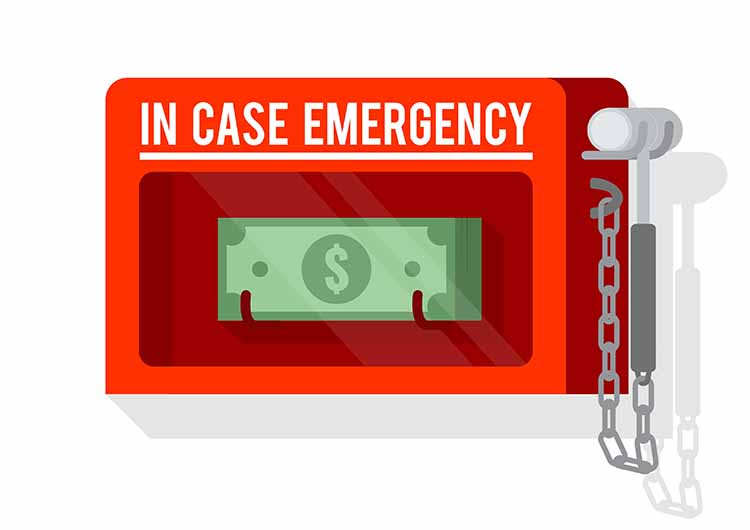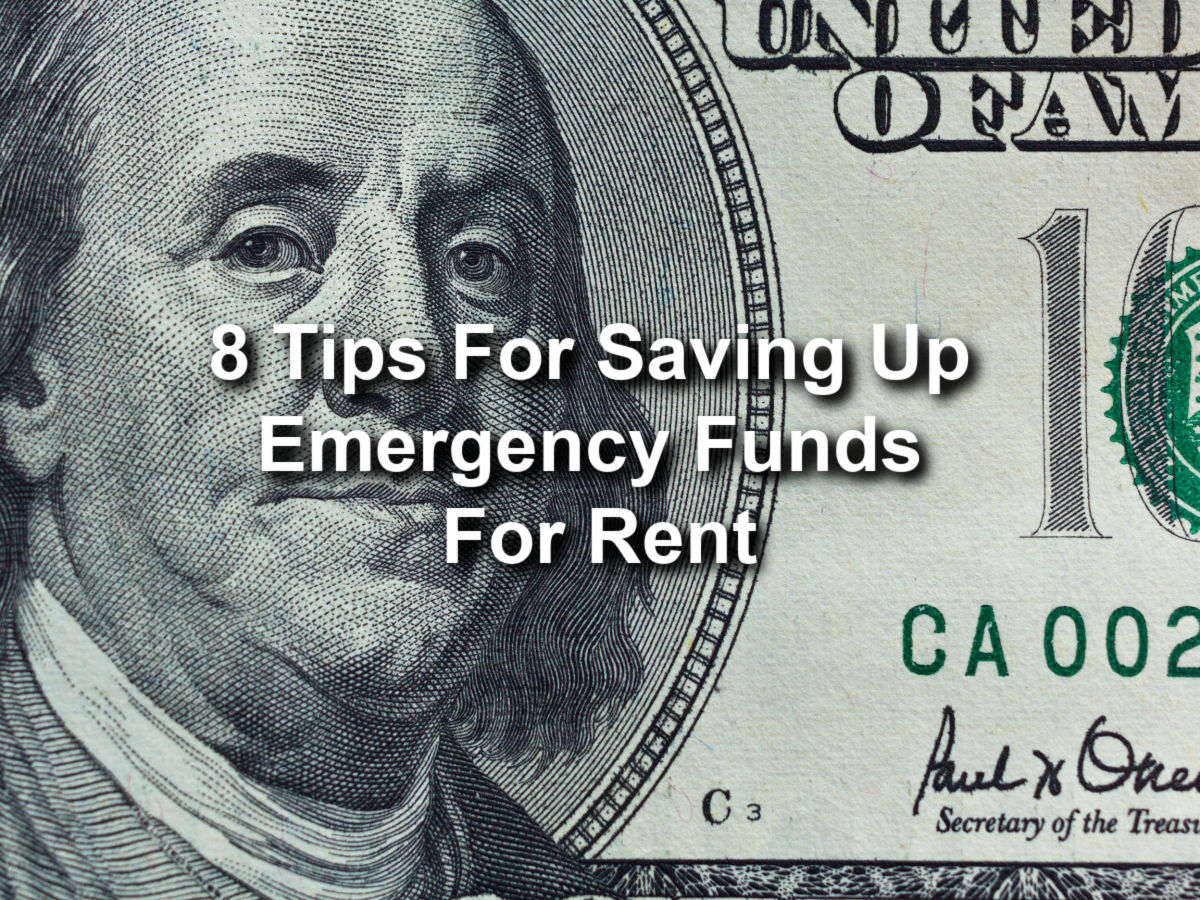
8 Tips For Saving Up Emergency Funds For Rent
Emergency funds can be used for all types of situations, but covering housing when you’re short is at the top of the list. If you’re trying to build up your emergency funds for rent, you’re in the right place.
This article will tackle the 8 top tips for starting your fund. From setting up the right account to knowing where the money will come from, we’ve got you covered.
How To Save Emergency Funds For Rent
1. Start Small
Rent prices have skyrocketed over the last two years and don’t look like they will decrease anytime soon. No matter your rent price, starting small is a perfect way to begin. Only add what you can to your fund – and have patience. It may take a few months to see a difference, but every day you’ll be closer to your goal.
2. Know Where The Money Will Come From
To start allocating money into emergency funds for rent, contributors need to be taking that money from another source. Be conscious of your spending and decide where you’re going to get your emergency fund money.
Can you cut down on your bills from eating out? Cancel an unnecessary subscription? Take on an extra shift at work twice a month? Pinpoint the sacrifice or effort you’ll need to do to build emergency funds for rent.

3. Isolate The Emergency Fund
Throwing a few dollars into a piggy bank isn’t the best way to save. While keeping cash at home is acceptable, it makes it susceptible to fires, robberies, and spontaneous spending.
Instead, we recommend isolating your emergency fund into a savings account or money market account that is separate from all of your other accounts.
4. Choose The Right Savings Account
Not all financial institutions are created equal. You can get way more bang for your buck at certain companies. There are a few things to look for when choosing where to hold your emergency funds for rent:
- Interest paid
- Fees
- Accessibility
First, avoid the big-name banks that pay a penny’s worth of interest. With the Fed’s high national rates, many online institutions are offering savings accounts with higher interest rates. So, you may want to look for the latter when examining savings account options.
Second, be sure the account doesn’t charge you any fees. Savings or cash accounts are low-maintenance accounts that should be easy and cheap to manage.
Finally, be sure you can easily deposit into and withdraw from the account. Since it will ideally be separate from your checking account provider, you’ll want to facilitate transfers and know how to access your money should an emergency arise.
5. Make It Automatic
Set up automatic contributions to your savings account every pay period. Try to arrange it to land on payday or the day after to ensure it is the first “bill” that you pay. Leaving your savings for the end of the month or pay period is sure to throw a wrench into your savings plan. Pay yourself first.
6. Pocket Unexpected Income
There are various times a year when you may come into extra money. Maybe your aunt gives you a little something extra for Christmas, your job gives you a raise or a bonus, or you come into money some other way. No matter how you get this extra cash, do not go shopping with it.
Lifestyle inflation is a phenomenon that happens when one’s income goes up. More money means you can spend more, right? All this perspective will do is trap you in a stressful financial cycle.
Take that money and put it towards your emergency funds for rent right away. You’ll reach your goal that much sooner.
7. Tackle High-Interest Debt First
While an emergency fund is of the essence, you should keep your savings deposits to a minimum if you have pending high-interest debt. Let’s say you have $1,000 on a credit card that’s charging you 20% interest every month. If you put $50 into your savings account instead of paying down your credit card, you’ll actually end up losing money in the long run.
Pay off or consolidate high-interest debt first, then work on your emergency funds for rent.
8. Have A Backup Plan
You may be at the beginning of building up your rainy-day fund when you face an unexpected expense. Suddenly, you’re short on rent and don’t know where to turn. It’s important to have a plan B.
If this is your case, you could consider borrowing from a friend or family member or getting an emergency installment loan.

How Emergency Installment Loans Work
An emergency installment loan from Delaware Title Loans, Inc. can get you up to $1,250 as soon as today. You’ll need your license, proof of income, and a bank account to apply – a perfect credit score or collateral is not required. To learn more or get started, fill out our online form today.
Take A Step Towards Financial Freedom
Building up emergency funds for rent is a great first step to becoming more financially secure. As you build up your savings, it’s also important to face financial urgencies with a calm and clear head.
If you need cash fast to get back on track, consider an emergency installment loan from Delaware Title Loans, Inc.
You could apply within the hour and get anywhere from $100 to $1,500 the same day or the following business day. Use the online form to get started today.
Note: The content provided in this article is only for informational purposes, and you should contact your financial advisor about your specific financial situation.